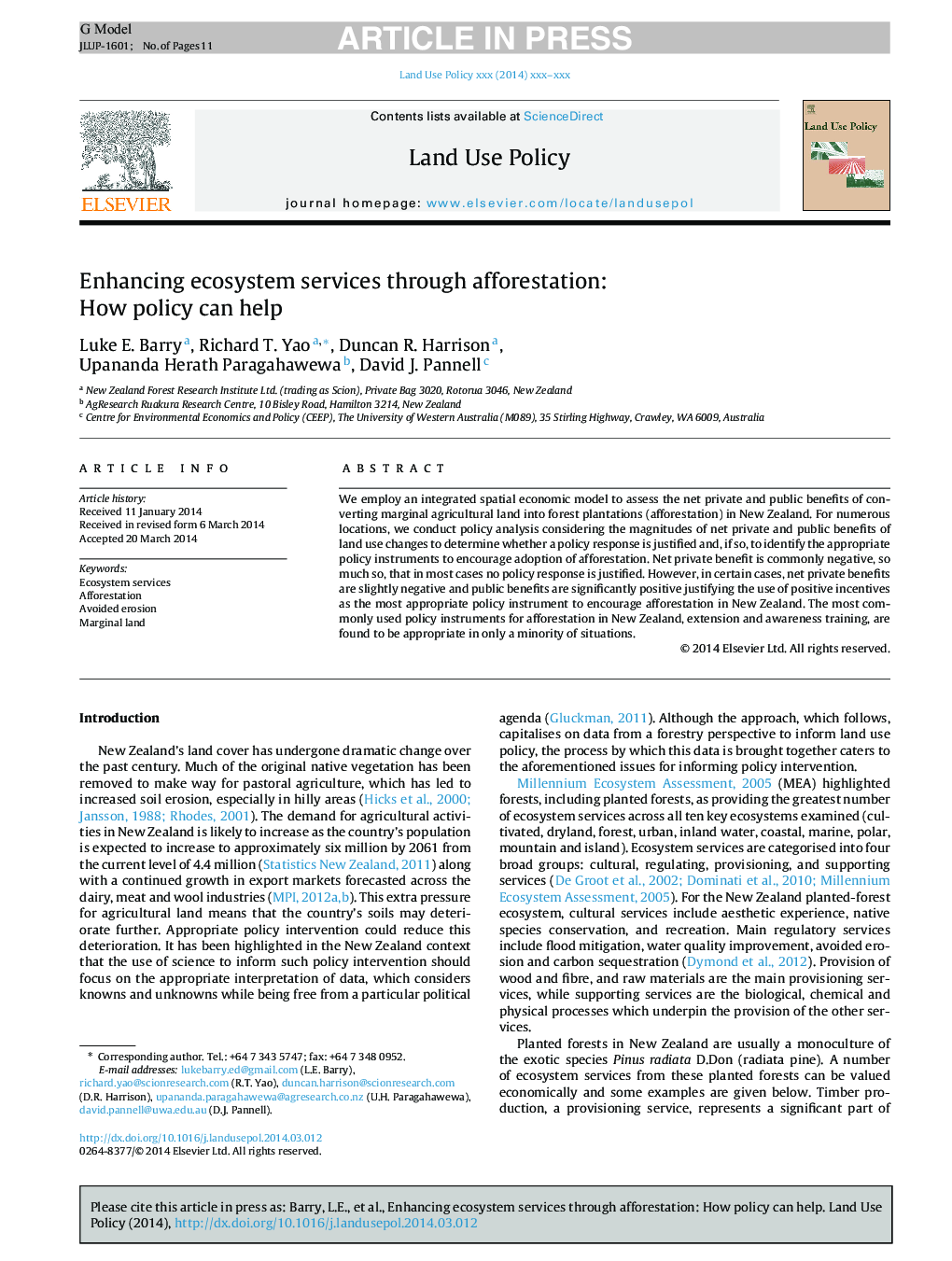| Article ID | Journal | Published Year | Pages | File Type |
|---|---|---|---|---|
| 6548597 | Land Use Policy | 2014 | 11 Pages |
Abstract
We employ an integrated spatial economic model to assess the net private and public benefits of converting marginal agricultural land into forest plantations (afforestation) in New Zealand. For numerous locations, we conduct policy analysis considering the magnitudes of net private and public benefits of land use changes to determine whether a policy response is justified and, if so, to identify the appropriate policy instruments to encourage adoption of afforestation. Net private benefit is commonly negative, so much so, that in most cases no policy response is justified. However, in certain cases, net private benefits are slightly negative and public benefits are significantly positive justifying the use of positive incentives as the most appropriate policy instrument to encourage afforestation in New Zealand. The most commonly used policy instruments for afforestation in New Zealand, extension and awareness training, are found to be appropriate in only a minority of situations.
Related Topics
Life Sciences
Agricultural and Biological Sciences
Forestry
Authors
Luke E. Barry, Richard T. Yao, Duncan R. Harrison, Upananda Herath Paragahawewa, David J. Pannell,
